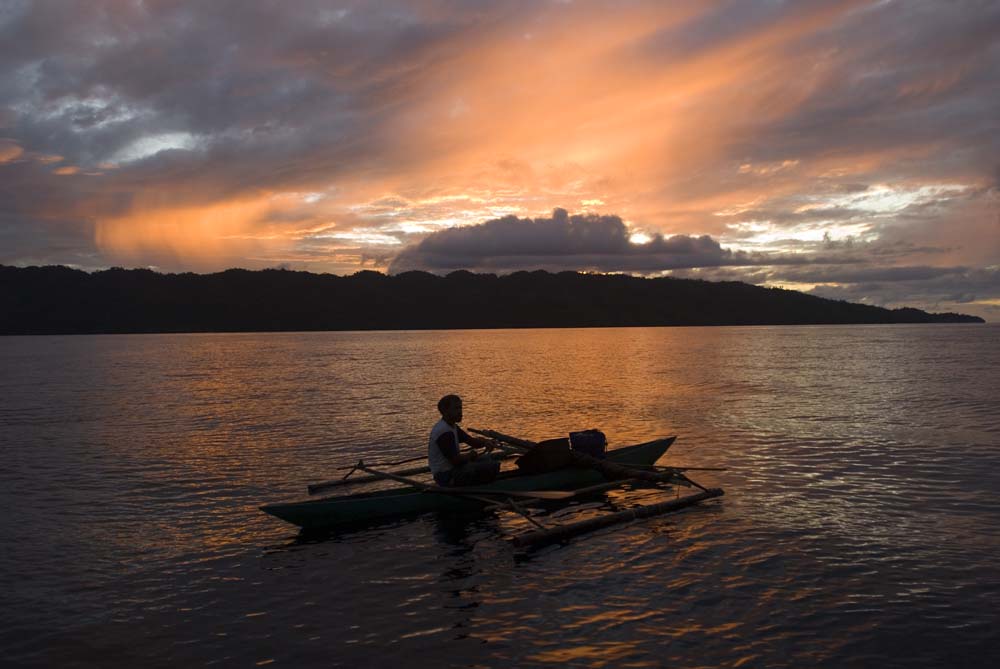


 The main reason sailing in Phuket is so special, is thanks to its diverse marine life, and stunning scenery. Therefore, as a visitor to Thailand and a sailor using the waters, it is imperative to build up an understanding of the challenges the environment is facing, as well as what you can do to ensure you are not adding to the problems.
The main reason sailing in Phuket is so special, is thanks to its diverse marine life, and stunning scenery. Therefore, as a visitor to Thailand and a sailor using the waters, it is imperative to build up an understanding of the challenges the environment is facing, as well as what you can do to ensure you are not adding to the problems.
 So why is protecting our oceans so important? Well for starters the worlds seas make up 72 per cent of our planet. It also drives the global weather patterns and our persistent preference for fossil fuels means it’s getting warmer. The ocean is also home to an immeasurable number of species of marine life, flora and fauna, and provides us with a large proportion of food. The ocean is a lung for the world, whilst the forests are the other; both providing the photosynthesis which allows us to breath.
So why is protecting our oceans so important? Well for starters the worlds seas make up 72 per cent of our planet. It also drives the global weather patterns and our persistent preference for fossil fuels means it’s getting warmer. The ocean is also home to an immeasurable number of species of marine life, flora and fauna, and provides us with a large proportion of food. The ocean is a lung for the world, whilst the forests are the other; both providing the photosynthesis which allows us to breath.
When pondering the threat that climate change poses, it can be quite overwhelming. In the ocean alone there are numerous problems from pollution to plastic, habitat loss due to over fishing, sea levels rising to species decline. It is also easy to only focus on the negatives, on the bad things man has done to cause this devastation in the very oceans we rely on for so much including recreation and travel such as yachting. What we must do instead of drowning in negativity, is improve our knowledge, and use the lessons we learn to have a positive impact to stave off the effects of climate change.
When on a sailing holiday, there are a number of things you can consider prior to departure, whilst on board, and when disembarking from your yacht to ensure you are leaving the waters as you found them, or perhaps even better! But first, before we look at the solutions you as a traveller can get involved with, let’s look at the issues…
Pollution
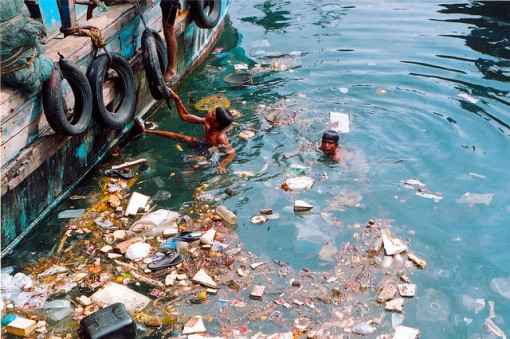 Any form of pollution that enters the waters which is cement or sediment based, dramatically damages the beautiful corals for which so many sailors travel to Phuket to see. Big developments around the coast line are contributors to this. Waste water from built up areas is also a massive issue with treatment of sewage not at its best. When sailing in Phuket it may seem easier just to chuck any waste over the edge, or empty the bucket of water you have used to clean the decks, or any number of things. This is all pollution. World over there are issues with chemicals getting into the water system, oil spills, toxic waste, sewage, as well as the trash that gets pumped into the first lung of the planet. Eutrophication is a major concern. This is the process where the continental shelf surrounding Phuket is flooded with chemicals from various water pollutants such as fertilizer and waste. This fuels the growth of algae affecting the oxygen levels in the water, in turn making it harder for marine-life to breath.
Any form of pollution that enters the waters which is cement or sediment based, dramatically damages the beautiful corals for which so many sailors travel to Phuket to see. Big developments around the coast line are contributors to this. Waste water from built up areas is also a massive issue with treatment of sewage not at its best. When sailing in Phuket it may seem easier just to chuck any waste over the edge, or empty the bucket of water you have used to clean the decks, or any number of things. This is all pollution. World over there are issues with chemicals getting into the water system, oil spills, toxic waste, sewage, as well as the trash that gets pumped into the first lung of the planet. Eutrophication is a major concern. This is the process where the continental shelf surrounding Phuket is flooded with chemicals from various water pollutants such as fertilizer and waste. This fuels the growth of algae affecting the oxygen levels in the water, in turn making it harder for marine-life to breath.
Plastic
 Plastic packaging is King, which is very unfortunate for the seas and all who use them. There is a dump zone the size of Texas in the Pacific Ocean full of all sorts of plastics. Not least plastic bags which to an innocent turtle looks like a tasty jelly fish. The number of marine animals found to have plastic in their stomachs is soaring, and is quite frightening as we eat some of these animals meaning plastics have entered our food chain. The most frightening of all the plastics are those which are too small for us to even see. These are the microplastics which are found in a number of beauty products, cleansing products, cleaning products, and more. There are huge campaigns across the globe to get companies to stop using microplastics in their products, and a great way to pressure this into reality is to put your money where your mouth is so to speak and choose greener alternatives. 46 per cent of plastics float, and drift for many years until they get sucked into a circular spin resulting in areas of concentrated waste like the one in the North Pacific mentioned. These swells are known as GYRES. The plastic eventually gets broken down through wind, water, and sunlight but they are then microscopic plastics which are just as dangerous to marine life.
Plastic packaging is King, which is very unfortunate for the seas and all who use them. There is a dump zone the size of Texas in the Pacific Ocean full of all sorts of plastics. Not least plastic bags which to an innocent turtle looks like a tasty jelly fish. The number of marine animals found to have plastic in their stomachs is soaring, and is quite frightening as we eat some of these animals meaning plastics have entered our food chain. The most frightening of all the plastics are those which are too small for us to even see. These are the microplastics which are found in a number of beauty products, cleansing products, cleaning products, and more. There are huge campaigns across the globe to get companies to stop using microplastics in their products, and a great way to pressure this into reality is to put your money where your mouth is so to speak and choose greener alternatives. 46 per cent of plastics float, and drift for many years until they get sucked into a circular spin resulting in areas of concentrated waste like the one in the North Pacific mentioned. These swells are known as GYRES. The plastic eventually gets broken down through wind, water, and sunlight but they are then microscopic plastics which are just as dangerous to marine life.
Over-fishing
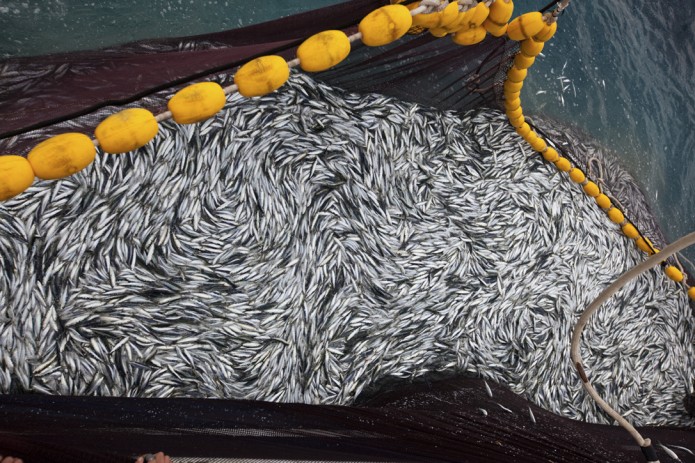 Fish forms an integral part of the Thai diet, and wets appetites the world over. But over fishing through methods such as trawling with dragnets is not only depleting the world’s fish stock, but destroying the sea bed in the process too. Larger sea mammals can also become entangled in the nets, and have less food stuff for themselves. Shrimp farms bring their own sets of problems as contaminated water seeps into the oceans. Fishing boats using more traditional methods are also of concern as fishing gear and tackle often ends up in the ocean and inside or around any number of sea-residing creatures.
Fish forms an integral part of the Thai diet, and wets appetites the world over. But over fishing through methods such as trawling with dragnets is not only depleting the world’s fish stock, but destroying the sea bed in the process too. Larger sea mammals can also become entangled in the nets, and have less food stuff for themselves. Shrimp farms bring their own sets of problems as contaminated water seeps into the oceans. Fishing boats using more traditional methods are also of concern as fishing gear and tackle often ends up in the ocean and inside or around any number of sea-residing creatures.
Mangrove loss
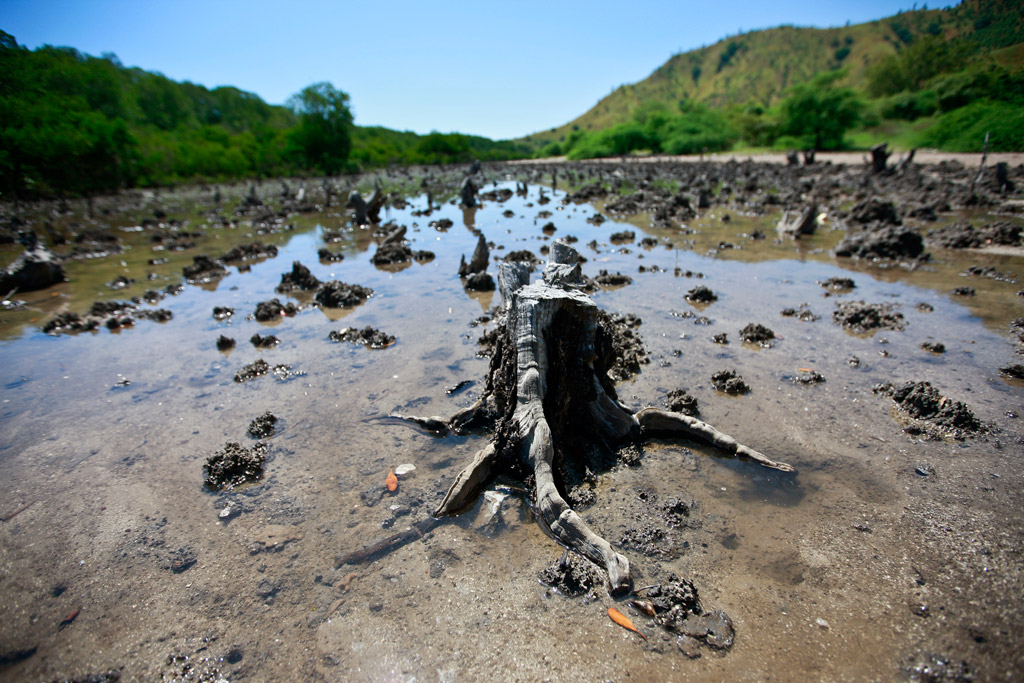 Years ago the west of Phuket was thriving with mangroves. These were cut back on a huge scale to make the beaches that are more appealing to tourists resulting in a visible decline in biodiversity.Mangroves are rich with flora and fauna that support one of the broadest array of wildlife, and their existence must be protected to limit the destruction to the food chain and wider ecosystem of some of the islands most treasured animals.
Years ago the west of Phuket was thriving with mangroves. These were cut back on a huge scale to make the beaches that are more appealing to tourists resulting in a visible decline in biodiversity.Mangroves are rich with flora and fauna that support one of the broadest array of wildlife, and their existence must be protected to limit the destruction to the food chain and wider ecosystem of some of the islands most treasured animals.
But it’s not all bad…
There are a number of organisations working in Phuket to protect it for travellers, beach addicts and sailors alike. One of which is called SEEK which stands for Society, Environment, Economy, and Knowledge. It is imperative that society works to improve their knowledge to protect the environment as it is key to a thriving economy for the people of Phuket. It is about working with local communities and visitors together, to change the culture of waste and ignorance, to maintain the islands reputation as a paradise. SEEK links businesses with NGOs and government to work together to tackle the problems explored in this document.
It is in the North of the island where SEEK really comes into its own in terms of protecting the natural systems which give life to Phuket. They have created in-depth sustainability plans for the island, and in particular the Andaman Coastal Region which look to improve the situation by 2025. They are also campaigning around plastic bag use, and striving for better recycling practices and clean-up operations across the island. They have education packages, and also work with tour companies and yacht charter companies like ourselves to promote coral rejuvenation and mangrove rehab.
What you can do: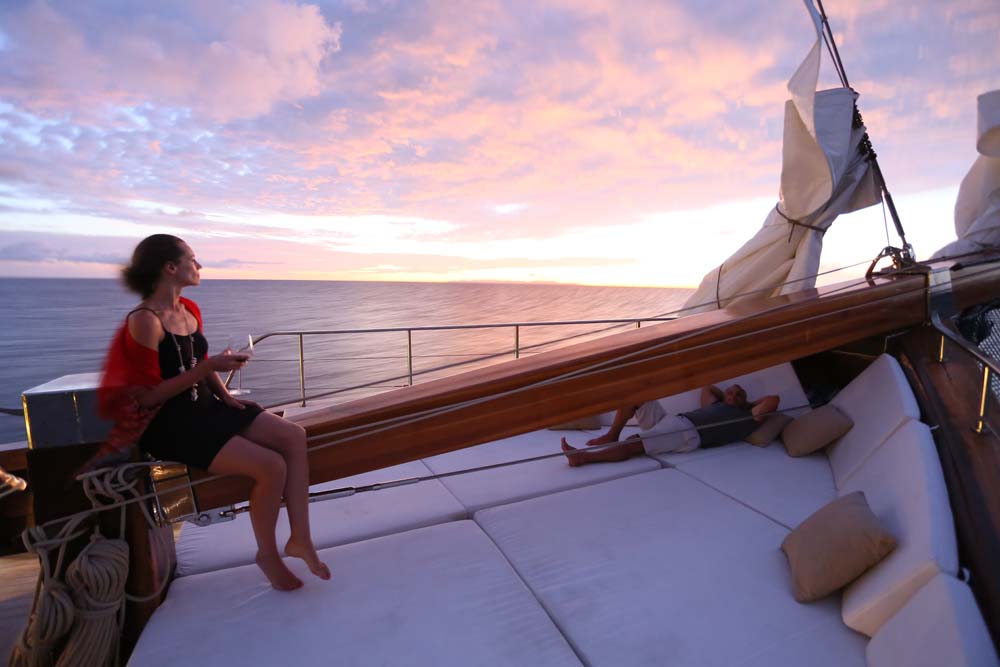
Now here is what you can do to make sure you have a positive impact on Phuket:
Any sailor will tell you that despite the challenges Phuket faces in terms of the marine environment, it is still one of the most breath-taking places to visit. Phang Nga National park enjoys protection, and so is well worth a visit. As well as the marine life you can enjoy the wildlife of the skies and land too. The Andaman sea and its multitude of lush green islands is magical when yachting. It is still one of the best places to see a variety of wildlife on the water, and enjoys the climate to make your yachting trip unforgettable.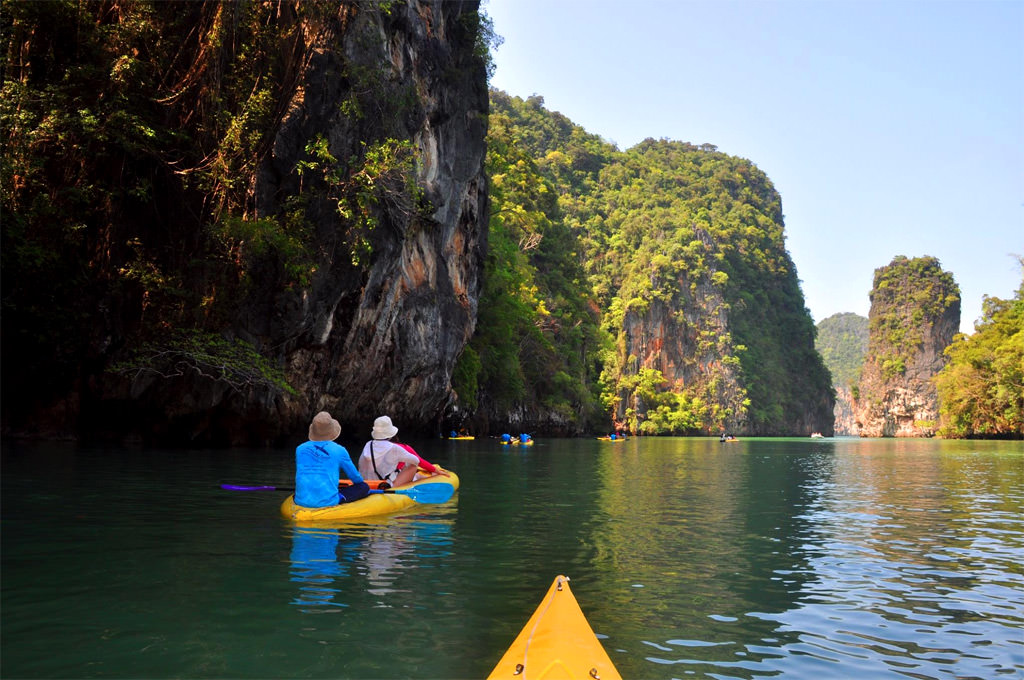
Going above and beyond!
It is all about knowing what problems there are, and what to do to avoid adding to them. If you are moved by the great work already being done by organisations and communities in Phuket you may wish to take some time away from the yacht and get involved. You could take part in beach cleans, ocean clean ups, surveys, knowledge sharing and more. There is always something to get involved with in Phuket when it comes to protecting the environment, so if that is something that interests you do your research before heading off on your yachting trip.
When you get home
What is key is that travellers recognise there are similar problems in their home nation. We want to protect areas of outstanding natural beauty – the kind of places we like to take a yachting holiday, but the thing is it is all connected. The oceans link up, and what you do at home can also have a massive impact on your favorite yachting destinations all over the world. Global currents push the trash and 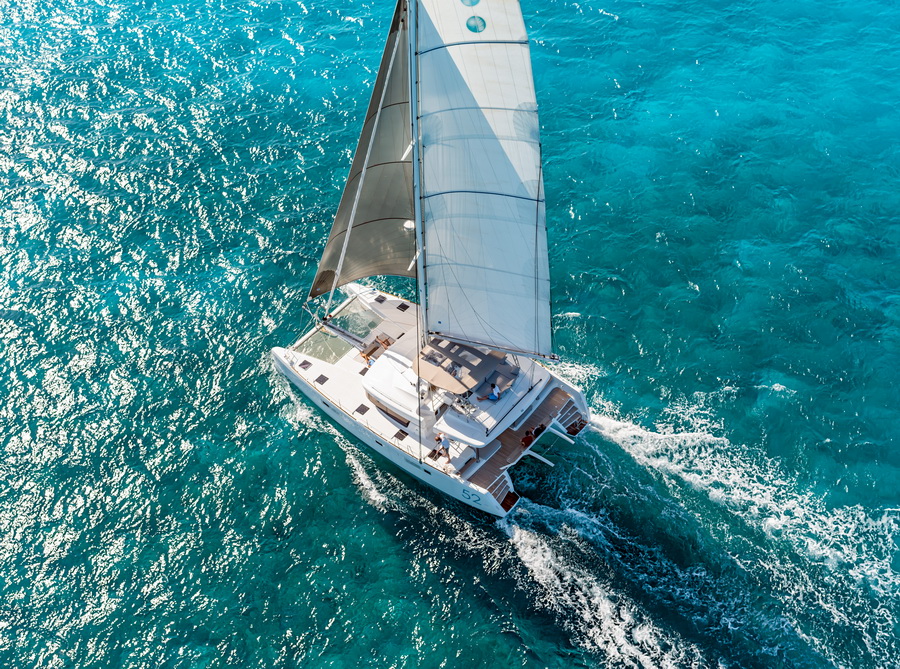 plastic all over the world. So consider researching local marine conservation groups when your yachting holiday is over, to make sure when you come back the scenery is even better than your memories tell you.
plastic all over the world. So consider researching local marine conservation groups when your yachting holiday is over, to make sure when you come back the scenery is even better than your memories tell you.
Key things to remember to be a responsible sailor:
Go forth and have fun on your sailing adventure, and protect Phuket in the process!
Photo Credit: conserve-energy-future.com, knowsleysk.co.uk, 9n0.dromgfm.top, un.org
22nd May 2017